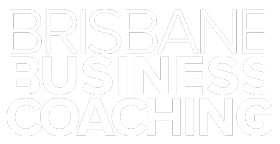Looking for a way to improve, grow, and empower your business? It would be best if you started with staff development.
Companies are always asking how they can improve leadership and be more productive, but they forget the obvious. As much as company leaders grow and shape the business, it is the staff at every level who keep the business successful. Companies have to remember that committed, dedicated employees are what can make or break a business.
Staff development isn't a top-down approach. It means showing that every employee has the potential to innovate and drive a company's mission. Investing in staff development is the best way to invest in your company and ensure its future success.

Staff development doesn't mean you need to keep hiring new employees until you find a perfect fit. Instead, it means helping employees become the ideal fit.
More specifically, staff development means improving your employees to innovate your business. Employees learn new skills that they can bring to your company.
This process involves various initiatives that will improve the current company talents, helping current employees to grow in their skills. Staff development can take many forms, such as
• Coaching/ Mentoring
• Conferences
• Workshops
• Career-planning
• Certifications
• And more
There are many available staff development tools online and for in-person sessions. You can find various staff development webinars online. Or, you can create plans in-house. For example, rather than senior employees working separately from others, they can share their expertise through mentorship programs to make teams stronger.

Staff development is an idea you'll hear about a lot, but not implemented to a great enough effect to make an impact. The reason for this may be that companies believe it's easier to hire outside talent with more qualifications rather than work to improve their current employees. However, this is a considerable and detrimental misunderstanding.
Better employees make for a better company. It is simple but straightforward logic. Continually trying to find and hire the right employees is a waste of company resources. Evidence shows that retaining and developing current staff has the most significant benefits for your company in the long term.
Hiring a new employee not only costs money, but it costs the company's time. No matter the new hire's qualifications, they have to learn the ins and outs of your business. Everything from the day-to-day operations to intricate systems may be new to even the most experienced.
Training a fresh employee will also take time away from your current employees who now need to devote themselves to getting a new hire up to speed. This time equates to money lost, as you end up paying managers to cover basics covered with a new hire. Moreover, the time it takes to get someone up to scratch and become productive also equates to even more loss.
Staff development circumvents all these losses. Since you are honing the skills and knowledge of someone already familiar with company operations, the training time is much shorter.
When it pays to invest in current talent, what do you have to lose? The benefits of staff development show on the bottom line in more ways than one.
Humans are not machines. So it may not be surprising to learn that feelings towards your job change how effective and productive you are at said job. This Gallup poll demonstrates that less than a quarter of employees remain actively engaged in their career. Indeed, it shows that over 15% are actively disengaged from their job, i.e. not engaged at all in their job.
What does that mean for business owners? Gallup estimates that this disengagement costs $300 billion in net losses. It may be discouraging, but instead, let's focus on the positive.
Studies also show that engaged employees lead to greater profit. That means that with positive changes to your work culture and staff development, a rise in profits may just be over the horizon!
Staff development helps to keep employees engaged, and experts say that engaging employees can come from simple initiatives. Showing empathy, regular check-ins, and demonstrating that leadership hears staff concerns can lead to happier employees and reduce burnout.
Just as it takes time for new hires to learn a company's practises, it takes time to understand the strengths and weaknesses of a company. Often, it is the veteran staff who best understand the pitfalls of a business and have ideas of how to innovate it.
One large example is a problem with communications. Surveys report that communication within a business is often lacking. Without strong, clear communication to employees, confusion is inevitable. It is logical why these surveys estimate that lacklustre communications lead to profit loss.
Seasoned employees of your company know what is necessary to communicate better. Communication is key to profitability, and this is where employees who understand your business and company culture can be lucrative.
And that's only one example of how they can help!
Engaged employees also can identify a variety of problems and approach these issues with a completely different perspective than outside hires. Some of the best solutions may be homegrown.
Staff development means that skilled employees can move up the ladder rather than feel forced out to seek new opportunities. And in the thriving work environment, employees may have worn different hats throughout their time at the company.
With extensive experience in a variety of roles at the same place, employees are likely to be more flexible. Why is flexibility desirable?
Change is inevitable. A company that remains stagnant will never grow. As your company changes and expands, roles and responsibilities may shift around.
Besides company culture issues, it's expensive to have a higher turnover with every change in your industry. However, employees that have grown and matured with you over the years will be more likely to succeed when changes come.
Some changes are sudden and unexpected. When the time comes, you want a team that you can trust to adapt and do the job well.
Any good business-minded person can connect profits with customer loyalty. To go further, the Harvard Business Review connects customer loyalty with employee loyalty. Training and experience lead to employees who can serve customers better.
Additionally, when employees have opportunities to learn and grow, their morale is higher, and their dissatisfaction with their job is lower. These opportunities to develop and earn promotions and rewards make employees appreciate their company. It forges a sense of loyalty between employees, managers, and business leaders.
Loyalty gives employees a desire to see their company succeed. This drive for success can also boost general employee performance.
When employees receive effective staff development, they hone their expertise and grow. In addition to company loyalty, continued growth may also lead to more effective on-the-job training between employees.
With plenty of opportunities to go around and a company's success viewed as a shared success, it is in employees' best interest to help each other. Learning from colleagues can also be the most beneficial form of training. Better training leads to effective, engaged employees. That means more profit for your business.
By now, it may be clear that using staff development tools will make for happier employees and a more productive, profitable team.
Even more good news: it will also attract talented candidates.
In the age of social media, the internet knows how you treat your employees. And of course, there's the traditional word of mouth.
Perhaps your employees don't have serious grievances. However, a general air of discontentment speaks volumes to potential candidates. Without a work culture that promotes professional growth and upward mobility, that “stuck” feeling is inevitable for your staff. And the discontentment only spreads.
Companies that actively strive to promote staff development and opportunities for staff are desirable. They (rightfully so), earn a reputation as a positive place to work. When word gets out, highly qualified and talented candidates will be eager to devote their skills to seeing your business succeed.
Talented people want opportunities to grow and learn. They will want to take advantage of the wealth of possibilities your company has to offer.
Furthermore, this reputation as a great place to work won't attract just potential candidates. Potential customers will also hear about your employee practises.
Customers are now skewing towards brands they believe to be ethical. Ethical practises can include the treatment and happiness of employees. An excellent reputation will help you attract new customers along with new hires.

Investing in staff development is the best investment for your business. So what's the first step?Hiring a business coach is a great way to get a new perspective on what your company needs to improve and grow. A business coach can give you insight into what your company's strengths and weaknesses are so that you know how to train and help your employees grow. If you are looking for a business coach, contact us now!
